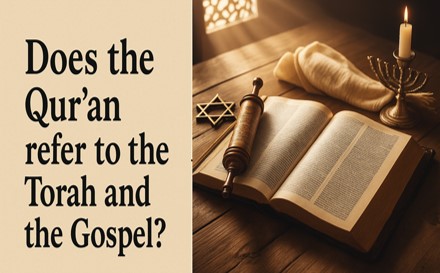
Some of my Muslim friends argue with me that when the Qur’an states that as Muslims we believe in whatever Moses and Jesus were given (Sura 3:84), it does not mean the present Torah and the Gospels that are part of the Bible. The following is my response.
1. The Qur’an’s own language
- Sura 3:84 says: “We believe in Allah, and in what has been sent down to us, and what was sent down to Abraham, Ishmael, Isaac, Jacob, the Tribes, and what was given to Moses and Jesus, and what was given to the prophets from their Lord…”
- Notice it doesn’t say “fragments” or “lost books”—it affirms a continuity of revelation.
2. The Qur’an elsewhere affirms the Torah and the Gospel
- Sura 5:47: “Let the People of the Gospel judge by what Allah has revealed therein.”
- Sura 5:68: “O People of the Book! You have no ground to stand upon unless you uphold the Torah, the Gospel, and what has been revealed to you from your Lord.”
These verses suggest that in Muhammad’s day, Jews and Christians still had texts worth following—not something entirely lost.
3. The historical problem with saying “not the present Bible”
- If Muslims claim our Torah and Gospels are corrupted beyond use, then the Qur’an is pointing people to non-existent texts, which would make its commands incoherent.
- Historically, the Torah and Gospels in use during Muhammad’s time are essentially the same as what we have today. Manuscripts like the Dead Sea Scrolls (before Christ) and Codex Sinaiticus (4th century) confirm this continuity.
4. What “corruption” likely meant
- Even early Muslim commentators like al-Tabari often spoke of Jews or Christians misinterpreting Scripture, not that the text itself had vanished.
- Later claims of total textual corruption developed after more disputes with Christians and Jews. But the Qur’an itself does not teach that the Torah and what Jesus received and gave to the disciples were lost.
5. Biblical response
From a Christian perspective, we can affirm:
- God preserves His Word (Isaiah 40:8; Matthew 24:35).
- Jesus referred to the Law, the Prophets, and the Psalms as the Scriptures still standing in His day (Luke 24:44).
- The same Scriptures were still in circulation at the time of Muhammad. To reject them is to go against both the Qur’an’s instruction and the historical evidence.
Conclusion:
If the Qur’an tells Christians to judge by the Gospel, but you say the Gospel no longer exists, isn’t that a contradiction? Shouldn’t we take seriously the Scriptures that both history and the Qur’an itself recognize were already in use?
For a detailed response on the question of integrity, please read my book: The Bible and the Qur'an - A Question of Integrity. Available here.
